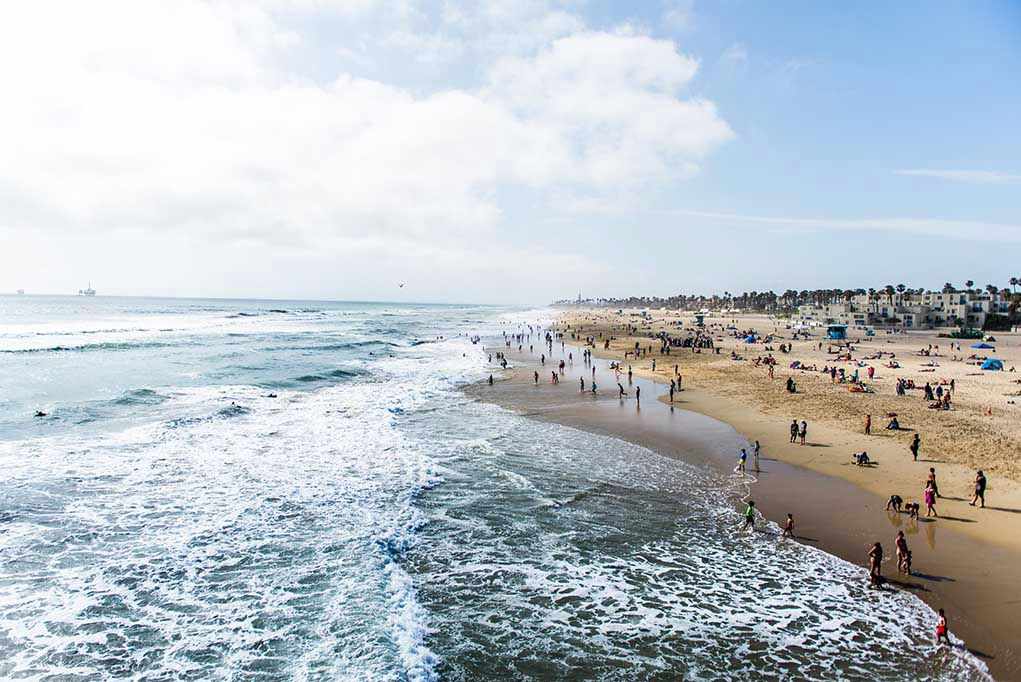
Key West, a city known more for sunsets and salty breezes than headlines, nearly turned its back on federal immigration enforcement—until a last-minute reversal revealed exactly how far state officials will go to keep Florida from becoming a sanctuary for illegal immigrants.
At a Glance
- Key West city leaders nearly voided their cooperation agreement with ICE, risking legal and political blowback.
- Florida’s Attorney General threatened to remove local officials for defying the state’s anti-sanctuary law.
- The city commission reversed course after public pressure and state intervention, reinstating their partnership with ICE.
- This saga highlights a deeper rift between local progressive activism and Florida’s tough stance on illegal immigration.
Key West’s ICE Deal: A Battle Over Law, Order, and Common Sense
Key West, the quirky southernmost tip of Florida, found itself at the center of a national debate over immigration enforcement after the city commission voted in late June to pull out of its 287(g) partnership with U.S. Immigration and Customs Enforcement. The agreement, which deputizes local police to work alongside ICE, was initially voided by a 6-1 vote. The reason? The city’s police chief, not the city manager, had signed the deal—a procedural technicality that some commissioners tried to use as an escape hatch from cooperating with federal law. If only every contract-breaking in America could be so conveniently bureaucratic.
The decision drew swift condemnation from Florida Attorney General James Uthmeier and Governor Ron DeSantis, who made it clear that the state would not tolerate what they called “sanctuary city antics.” Uthmeier threatened to remove city officials from office and pursue criminal penalties if Key West didn’t get back in line with Florida’s anti-sanctuary law—a law that, imagine this, says local governments actually have to follow federal immigration enforcement mandates. What a radical concept: elected officials enforcing the law instead of making up the rules as they go along.
State Pressure Crushes Local Resistance
After a week of tense protests, heated public comment, and a flurry of legal threats, the city commission reversed its decision on July 8 with a 4-2 vote. The city will once again cooperate with ICE, and Key West’s police will resume their federally-backed efforts to remove criminal aliens from the community. For a moment, it looked like Key West would join the ranks of cities that prioritize political posturing over public safety. Instead, state officials reminded them—loudly and clearly—who sets the rules in Florida when it comes to immigration enforcement.
This political arm-wrestling comes as Florida has doubled down on its anti-sanctuary laws. Every sheriff’s office in the state participates in 287(g), thanks in large part to DeSantis’s push for uniformity and accountability. Local leaders who try to sidestep these agreements quickly discover that the state has both the legal authority and the political will to enforce compliance. In Key West’s case, the city commission’s brief rebellion was quashed before it could become a cautionary tale for other would-be sanctuary cities.
Community Division Exposes National Rifts
The drama didn’t unfold in a vacuum. Key West’s reversal exposed deep divisions within the community. Residents packed commission meetings to voice their outrage, with some championing the need for law and order and others decrying what they see as a betrayal of the city’s progressive values. Faith leaders and advocacy groups warned that renewed cooperation with ICE would erode trust between police and immigrant communities, while supporters argued that the real threat comes from ignoring the law and endangering public safety.
These tensions mirror the national debate: Should local governments have the right to obstruct federal immigration enforcement, or are they duty-bound to uphold the law and protect citizens from criminals who shouldn’t be here in the first place? Florida’s answer is clear—there’s no room for sanctuary city grandstanding in the Sunshine State, and state officials are willing to fight tooth and nail to keep it that way.
Legal Precedent and Future Showdowns
Key West’s episode is more than just a local skirmish; it’s a warning shot to any municipality thinking of challenging state authority on immigration. By forcing the city commission’s hand, Florida’s leadership set a powerful precedent: local governments cannot simply opt out of federal law for political convenience or to placate loud activist groups. The message to the rest of Florida—and frankly, the country—is blunt: play by the rules, or face consequences.
For those concerned about the erosion of law and order, the waste of taxpayer dollars on endless virtue signaling, and the increasing prioritization of illegal immigrants over citizens, the outcome in Key West is a rare but welcome victory for common sense governance. The battle lines are drawn, and as long as state leaders hold the line, Florida won’t be joining the sanctuary city circus any time soon.











